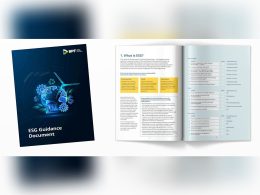A coalition of 12 sustainable finance and corporate reporting organisations is calling on UN Member States to commit to mandatory environmental, social, and governance (ESG) reporting standards, including double materiality reporting. The appeal has been issued ahead of the UN-convened International Conference on Financing for Development (FfD4), which aims to reform international financial systems to support the Sustainable Development Goals (SDGs).
The call to action is led by organisations including GRI, B Lab, Capitals Coalition, CDP, Danish Institute for Human Rights, and the World Benchmarking Alliance, among others.
The coalition argues that corporate reporting should assess both a business’s impact on the economy, environment, and society, as well as how sustainability challenges affect financial risks and opportunities. This approach, it states, provides investors, governments, and stakeholders with crucial insights to drive sustainable finance objectives.
The letter proposes that national governments transpose two key sustainability standards into law: the International Sustainability Standards Board (ISSB) standards, which focus on investor information needs, and the Global Reporting Initiative (GRI) standards, which assess external impacts.
By integrating these well-established frameworks, the coalition contends that governments could act swiftly, leveraging their widespread adoption and compatibility. It emphasises that these standards offer globally comparable and decision-useful information, ensuring a level playing field and lower reporting costs for businesses.
The Call to Action comes as delegates prepare for a key session in New York this week, ahead of the International Conference on Financing for Development in Spain this summer.
A Zero Draft for the conference proposes that global disclosure legislation should be based on a double materiality approach. Advocates argue that this method would enhance risk and opportunity oversight in private finance, equip policymakers with essential data, and support financiers in making outcome-focused investment decisions.
The appeal to UN Member States coincides with debates within the European Commission over the future of mandatory double materiality reporting under the Corporate Sustainability Reporting Directive (CSRD).
Two years after its introduction, the CSRD is facing potential revisions as the EU considers an ‘Omnibus’ proposal, which could reopen negotiations on the CSRD, the Corporate Sustainability Due Diligence Directive (CSDDD), and the sustainable finance taxonomy. This move is largely driven by pressure from businesses and trade groups seeking to reduce regulatory burdens.
However, many large corporations, investors, and civil society organisations oppose the proposed changes. Earlier this month, more than 150 civil society organisations sent a letter to the European Commission, warning that altering previously approved legislation could create regulatory uncertainty, jeopardise existing investments, and undermine future sustainability commitments.
As discussions unfold at both the UN and EU levels, the debate over double materiality and mandatory ESG reporting continues to shape the future of corporate sustainability standards worldwide.















